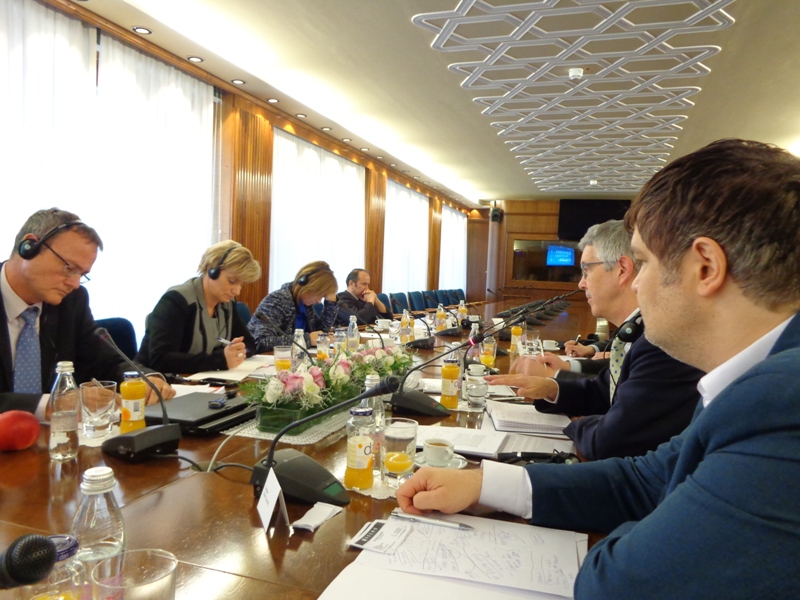After several months of trial proceedings, prosecutors in Slovenia have dropped charges against a prominent investigative journalist accused of publishing classified state intelligence, the International Press Insitute (IPI) has learned.
The case had previously drawn scrutiny from IPI, its affiliate the South East Europe Media Organisation (SEEMO) and other press freedom groups amid concerns that the decision to indict the journalist, Anuška Delič of the leading Slovenian daily Delo, failed to properly take into account the media’s fundamental right to report on matters of public concern.
In 2011 Delič wrote a series of articles shortly before that year’s Slovenian parliamentary elections in which she discussed alleged connections between the Slovenian neo-Nazi group Blood and Honour and members of the Slovenian Democratic Party (SDS). Slovenia’s Intelligence and Security Agency (SOVA) claimed afterward that the information Delić used for her report had been illegally acquired from its files, prompting a criminal inquiry. Delić was eventually indicted in April 2013, though her trial did not begin until January 2015.
According to reports, prosecutors today withdrew the charges due to “lack of evidence”.
In an e-mail, Delić characterised the decision as a “bitter victory” and wrote that statements made to the Slovenian media by the state prosecutor in the case, Andreja Zavnut, suggested that officials nevertheless considered her guilty.
She added: “Since my case was the first of its kind I fear that its resolution might actually give the State further recourse to prosecute journalists (for show) and then drop the charges just before the judge has his say, yet claim publicly that the journalist is guilty.”
IPI and SEEMO had raised the issue of Delić’s prosecution in meetings with Slovenia’s justice minister, Goran Klemenčič, and the chair of the justice committee in the Slovenian parliament, Bojana Muršič, during a visit to Ljubljana in November 2014.
Last month, the justice ministry announced proposed changes to Art. 260 of the criminal code, under which Delić was charged. The reform would reintroduce a public interest exception for the publication of classified information that had been removed in 2008 under former Prime Minister and SDS leader Janez Janša. A public consultation period on the proposal was scheduled to last one month.
“While we are disappointed by reported attempts to subject Anuška Delič to a continued cloud of suspicion, we are relieved by the decision to drop charges against her in a case that should not have been brought in the first place,” IPI Executive Director Barbara Trionfi said today. “Nevertheless the experience of Ms. Delič’s prosecution still has a singificant potential to chill investigative reporting. To prevent this, the Slovenian government needs to make it unequivocally clear that journalists such as Ms. Delič who report on matters of obvious public interest are not criminals.
“We further urge the Slovenian Assembly to rapidly approve the proposed reform to Art. 260 so as to prevent such cases from being brought in the future.”
During the trial, Delić was pressed to reveal her sources behind the Blood and Honour exposé, but refused. She and her lawyer also presented evidence that material said to have been only known to SOVA was, in fact, publicly available, including company registers and social media sites. Several of the hearings were held behind closed doors due to the presentation of classified information or the testimony of SOVA operatives.
In her statement of defence presented to the court in January, Delić criticised what she viewed as the Slovenian’s government’s failure to address “anti-constitutional organisations”. While the latter may threaten Slovenian national security, she concluded, “I am definitely not this threat”.



